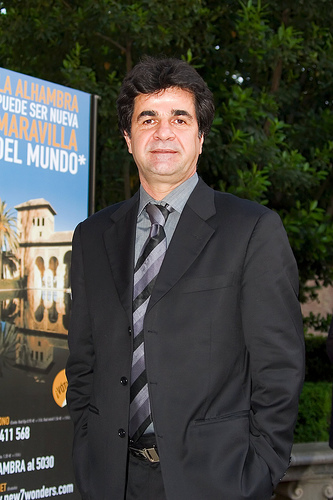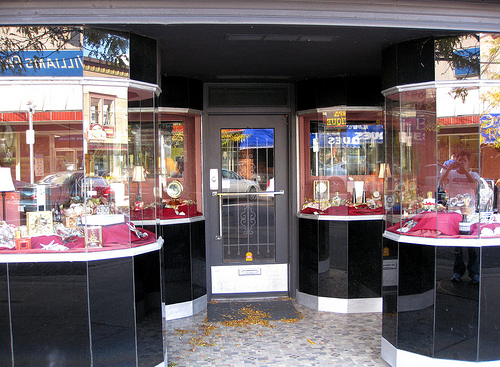 Filmmaker Jafar Panahi was released from an Iranian jail on Tuesday after posting two billion rials ($200,000) in bail. During his incarceration, Panahi endured a nine-day hunger strike. Panahi had been jailed in early March for ambiguous reasons, although Tehran Prosecutor General Abbas Jafari-Dolatabadi claimed that political factors had played no role in the arrest. Nonetheless, opposition groups suggested that Panahi’s plans to film a documentary about the protests following the controversial Iranian elections last June had triggered the government’s concern. Panahi was a supporter of the Green Movement, and he has attributed the defeat of the Movement’s favored candidate, Mir-Hossein Mousavi, to the government’s alleged electoral fraud. Iranian officials have been particularly aggressive in their efforts to prevent protests in the days leading up to June 12, the first anniversary of the disputed election. On the same day as Panahi’s release, nearly 250 others were sentenced; 11 of the detained protestors will be put to death. Female dress codes (which require women to conceal their hair and cover their legs down to the ankles) have also been more stringently enforced in the nation’s major cities.
Filmmaker Jafar Panahi was released from an Iranian jail on Tuesday after posting two billion rials ($200,000) in bail. During his incarceration, Panahi endured a nine-day hunger strike. Panahi had been jailed in early March for ambiguous reasons, although Tehran Prosecutor General Abbas Jafari-Dolatabadi claimed that political factors had played no role in the arrest. Nonetheless, opposition groups suggested that Panahi’s plans to film a documentary about the protests following the controversial Iranian elections last June had triggered the government’s concern. Panahi was a supporter of the Green Movement, and he has attributed the defeat of the Movement’s favored candidate, Mir-Hossein Mousavi, to the government’s alleged electoral fraud. Iranian officials have been particularly aggressive in their efforts to prevent protests in the days leading up to June 12, the first anniversary of the disputed election. On the same day as Panahi’s release, nearly 250 others were sentenced; 11 of the detained protestors will be put to death. Female dress codes (which require women to conceal their hair and cover their legs down to the ankles) have also been more stringently enforced in the nation’s major cities.
Panahi’s case attracted international attention due to his absence from the Cannes Film Festival, where he had been invited to sit on the festival’s grand jury. A seat on the jury was left vacant in his honor, and attendees at the festival voiced their support for the jailed filmmaker. Although state television in Iran derided the actions of festival attendees as “political propaganda,” international pressure likely contributed to the decision to set bail for Panahi. According to Jafari-Dolatabadi, Panahi will now be freed until he is called to appear before the nation’s Revolutionary Court, which deals primarily with national security-related issues.
 At least seven jewelry stories on a major street in Iraq were robbed Tuesday, reportedly by al Qaeda operatives. The robberies occurred just before noon, when five or six cars, each containing three masked men armed with grenades and assault rifles, entered the Baghdad neighborhood of Baiyaa. The men set off a roadside bomb and proceeded to rob at least seven nearby jewelry stores. No fewer than 14 people were killed, most of whom were owners of the shops. Authorities immediately attributed the robberies to al Qaeda, which has been blamed for a string of violent activities in recent weeks. Last month, Iraqi and American forces killed leaders of a major Iraqi insurgent group that contained al Qaeda members, further exacerbating the group’s already severe problems in the country. Over the past month, al Qaeda has reportedly launched a wave of attacks aimed at regaining its financial foothold. In fact, in early May, Major General Qassim Atta openly commented on the possibility of bank and jewelry store robberies in the coming weeks. The string of robberies on Tuesday was especially audacious, taking place less than 800 yards away from a checkpoint. Police and soldiers fired on the robbers, but nearly all of the masked men reportedly escaped, and four policemen were wounded in the firefight. Police later sealed off the city, defusing magnetic bombs that the robbers had planted in several nearby cars before fleeing.
At least seven jewelry stories on a major street in Iraq were robbed Tuesday, reportedly by al Qaeda operatives. The robberies occurred just before noon, when five or six cars, each containing three masked men armed with grenades and assault rifles, entered the Baghdad neighborhood of Baiyaa. The men set off a roadside bomb and proceeded to rob at least seven nearby jewelry stores. No fewer than 14 people were killed, most of whom were owners of the shops. Authorities immediately attributed the robberies to al Qaeda, which has been blamed for a string of violent activities in recent weeks. Last month, Iraqi and American forces killed leaders of a major Iraqi insurgent group that contained al Qaeda members, further exacerbating the group’s already severe problems in the country. Over the past month, al Qaeda has reportedly launched a wave of attacks aimed at regaining its financial foothold. In fact, in early May, Major General Qassim Atta openly commented on the possibility of bank and jewelry store robberies in the coming weeks. The string of robberies on Tuesday was especially audacious, taking place less than 800 yards away from a checkpoint. Police and soldiers fired on the robbers, but nearly all of the masked men reportedly escaped, and four policemen were wounded in the firefight. Police later sealed off the city, defusing magnetic bombs that the robbers had planted in several nearby cars before fleeing.
